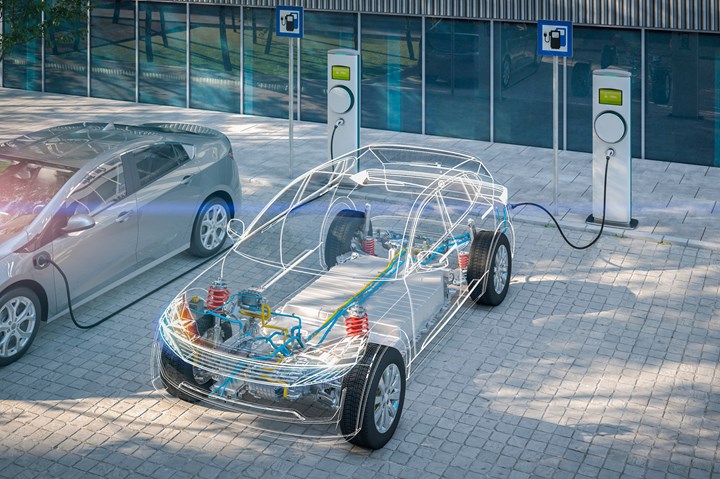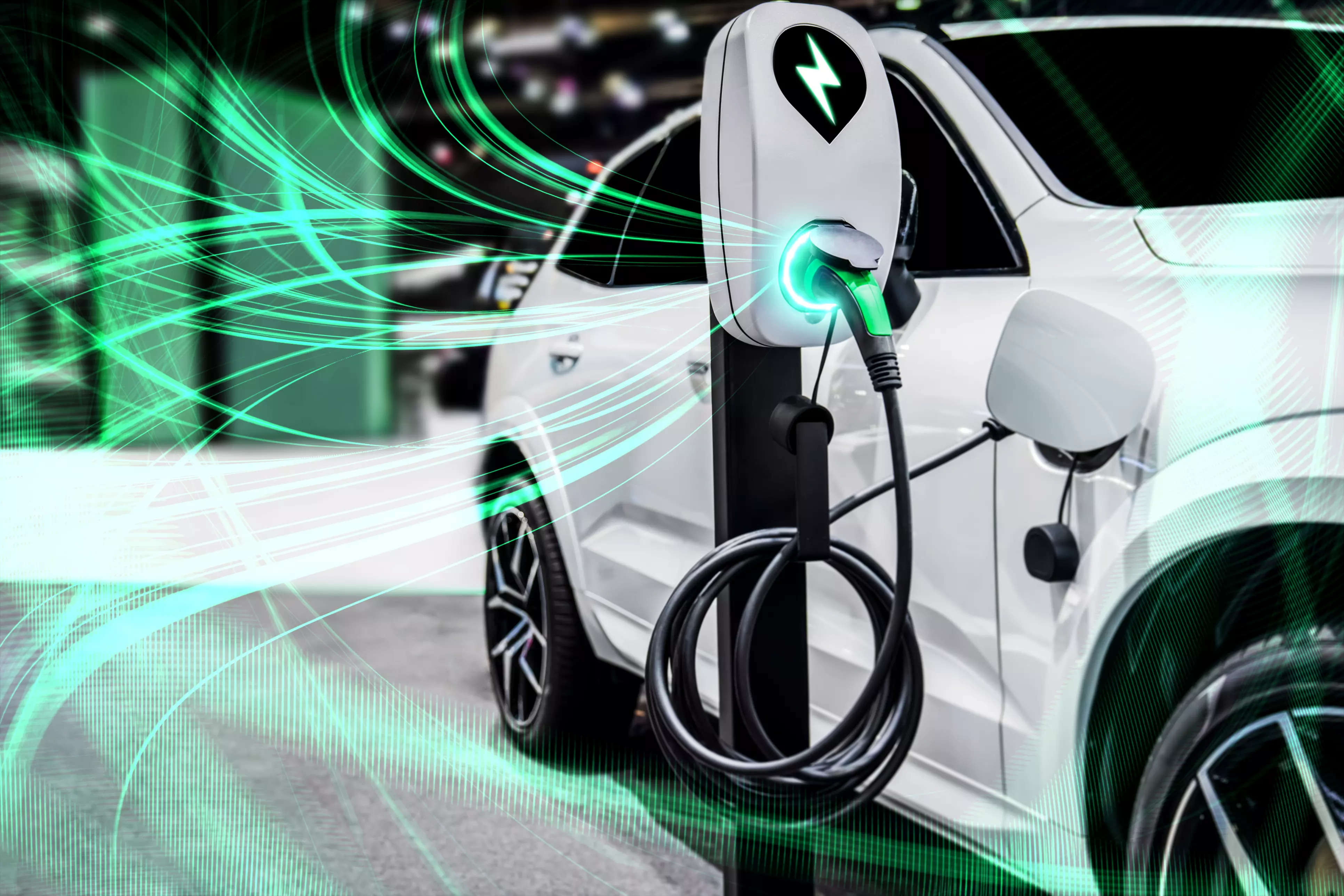Electric Vehicle Startups Hit A Road Block Amid Tesla’s Price War, Cash Management and Funding Concerns
The electric vehicle (EV) startups/industry in the US is facing tough times as Tesla wages a price war that impacts the market. Investors are eagerly awaiting the quarterly results of EV startups to gauge the impact of these price pressures and to understand how these companies are managing their cash flow amid a scarcity of funding. Established automakers like Ford Motor are also feeling the pinch, with losses mounting in their EV ventures. The situation has already claimed its first casualty with Lordstown Motors, an electric truck maker, filing for bankruptcy in June.

Electric Vehicle Startups Hit A Road Block
Startups such as Lucid and Nikola are expected to report steep cash burn in the latest quarter as they continue to grapple with challenges in production and demand.
US electric vehicle startups are expected to show the impact of Tesla’s price war when they report quarterly results over the next few days, with investors awaiting details on how the companies manage cash amid a funding drought.
Even market leader Tesla has warned of “turbulent times” and traditional automakers with deeper pockets including Ford Motor (FN) are losing money on EVs. The squeeze has already claimed its first casualty in electric truck maker Lordstown Motors, which filed for bankruptcy in June.
“The only ones that have a chance besides Musk are the legacy auto providers and so far they are proving that they are losing money hand over fist trying to get into the EV game,” said Thomas Hayes, chairman of hedge fund Great Hill Capital. Hayes follows the EV industry closely but holds no shares
Amidst the financial struggles, Rivian Automotive, backed by Amazon, appears to be the one standout. Analysts anticipate a three-fold surge in revenue to $983.1 million for the April-June quarter. Moreover, the company’s cash outflow may have slowed to $1.19 billion in the second quarter, showing improvement compared to the previous period. This positive trajectory is attributed to Rivian’s ability to create demand among customers who are new to purchasing pickup trucks.
“Rivian’s competitive advantages are shining brighter, with the company emerging as a demand creator when considering that the majority of its buyers have never previously purchased a pickup truck,” Needham analyst Chris Pierce said.
Tough Times Ahead
Ford’s Electric Vehicle (EV) segment is equally going through a challenging period with projected losses of $4.5 billion this year, surpassing initial expectations by $1.5 billion. So far, the segment has incurred losses of $1.8 billion this year, exceeding the previous year’s loss of $2.1 billion.
Ford’s EV company is adopting Elon Musk’s Tesla Inc.’s pricing strategy to address these significant losses by implementing aggressive price cuts to attract more customers. The company has reduced the prices of its electric F-150 pickup trucks.
Despite the expected losses in the EV segment, Ford’s overall financial performance has been better than anticipated. The company reported higher earnings per share (EPS) of $0.72, surpassing the estimated $0.54. The revenue reached $45 billion, and the adjusted EBITDA stood at $3.8 billion, both exceeding the market’s expectations.
As a result of these positive results, the company is updating its guidance. Ford now anticipates an adjusted EBIT (earnings before interest and taxes) between $11 billion and $12 billion, up from the previous range of $9 billion to $11 billion. Further, the forecast for free cash flow has been increased from $6 billion to $6.5 billion to a new range of $7 billion.
The positive for Ford is that it has delivered 201 F-150 Lightning units, marking a significant 221% increase in EV sales. Despite these positive developments, concerns have arisen about Ford’s EV production schedule and spending plans.

Tesla’s Price War
However, the ongoing price war caused by Tesla’s pricing strategies has created uncertainties and delays in Ford’s production targets.
Therefore, Ford has scaled back its plans for ramping up EV production and has simultaneously extended its timeline to achieve its target of manufacturing 600,000 EVs annually by another year.
At the same time, Ford’s CEO, Jim Farley, remains optimistic about the company’s ability to navigate this challenging landscape. He emphasizes the importance of providing customers with powerful digital experiences and innovative EVs while adapting to the pace of EV adoption.
Ford’s resilience, efficiency, and profitability were evident in the second-quarter performance of Ford Pro, which experienced a 22% revenue improvement and a 15% EBIT margin.
Further, CFO John Lawler reassured that Ford has enough resources to support strategic growth investments while also returning capital to shareholders. The company aims to allocate 40% to 50% of adjusted free cash flow to shareholders. However, Ford has yet to provide a specific date for achieving its ambitious target of producing 2 million EVs per year, which was previously set for 2026.
Ford is currently facing a tough challenge in competing with Tesla in the EV market due to Tesla’s aggressive pricing strategy. Tesla’s continuous price cuts have resulted in higher purchases and deliveries, making it more attractive to EV customers in major markets such as China, Europe, and the United States.
Given the uncertainties in Ford’s EV segment, investors and industry analysts are closely monitoring the company’s performance; Ford’s following quarterly report on October 26 will offer further insights into the company’s operations for the rest of the year.

EV Startup’s Ongoing Struggle
However, Lucid, majority-owned by Saudi Arabia’s Public Investment Fund, is expected to report deeper losses, partly due to supply chain problems that impacted production in the April-June period.
On the other hand, Nikola, which issued a going-concern warning, is likely to report a 15% decline in revenue and widening losses, despite its efforts to reduce cash burn through layoffs and the liquidation of a recently acquired battery business.
Meanwhile, Fisker, which has healthy cash reserves and ambitious profitability goals, is anticipated to report its first revenue from vehicle sales after the successful delivery of its Ocean SUVs in the June quarter. However, the company missed its production target due to parts shortages. Investors will closely scrutinize Fisker’s reservation numbers as its Ocean SUV does not qualify for the $7,500 federal tax credit.
The Last Bit, As Tesla’s price war continues to impact the EV market, startups and established automakers alike are facing financial challenges. Investors are closely monitoring the industry to assess the resilience and adaptability of these companies in navigating the changing landscape. Despite uncertainties, there are glimmers of hope with companies like Rivian showing promising signs of success. The next quarterly reports will provide further insights into the performance of these EV startups for the rest of the year.





